Turkmenistan is not cool.
Part 2: Optional Illusion
Part 2 of a two-part post. Read Part 1: Turkmenistan: The Gates of Hell
As I noted in part one of this post, Turkmenistan’s approach to tourism seems to favor flash over substance, which is possibly a way of covering up what’s really going on.
An Assault on Human Rights
Turkmenistan has had an authoritarian government since it broke from the Soviet Union in 1991. It has a dubious human rights record, where the government routinely disappears people* and there are credible claims that human slavery exists, particularly in the country’s cotton fields.
Each year, the government orders government workers, such as teachers, to leave their jobs to pick cotton by hand (or pay a bribe or pay for a replacement).
When I first saw the cotton fields with manual labor, my first thought was: “In the U.S., we stopped picking cotton by hand with the end of slavery.” Forced labor may be one reason why manual picking is still economicially viable for the country.
Women’s rights are a particular concern. Throughout the country, a bride price of $3,000 to $4,000 is still paid as a form of dowry, paid in cash or in combination with camels and silk carpets.
Despite the high price, marriage is both expected and popular in Turkmenistan. Most couples get married by age 30 and receive a parcel of land from the government when they wed.
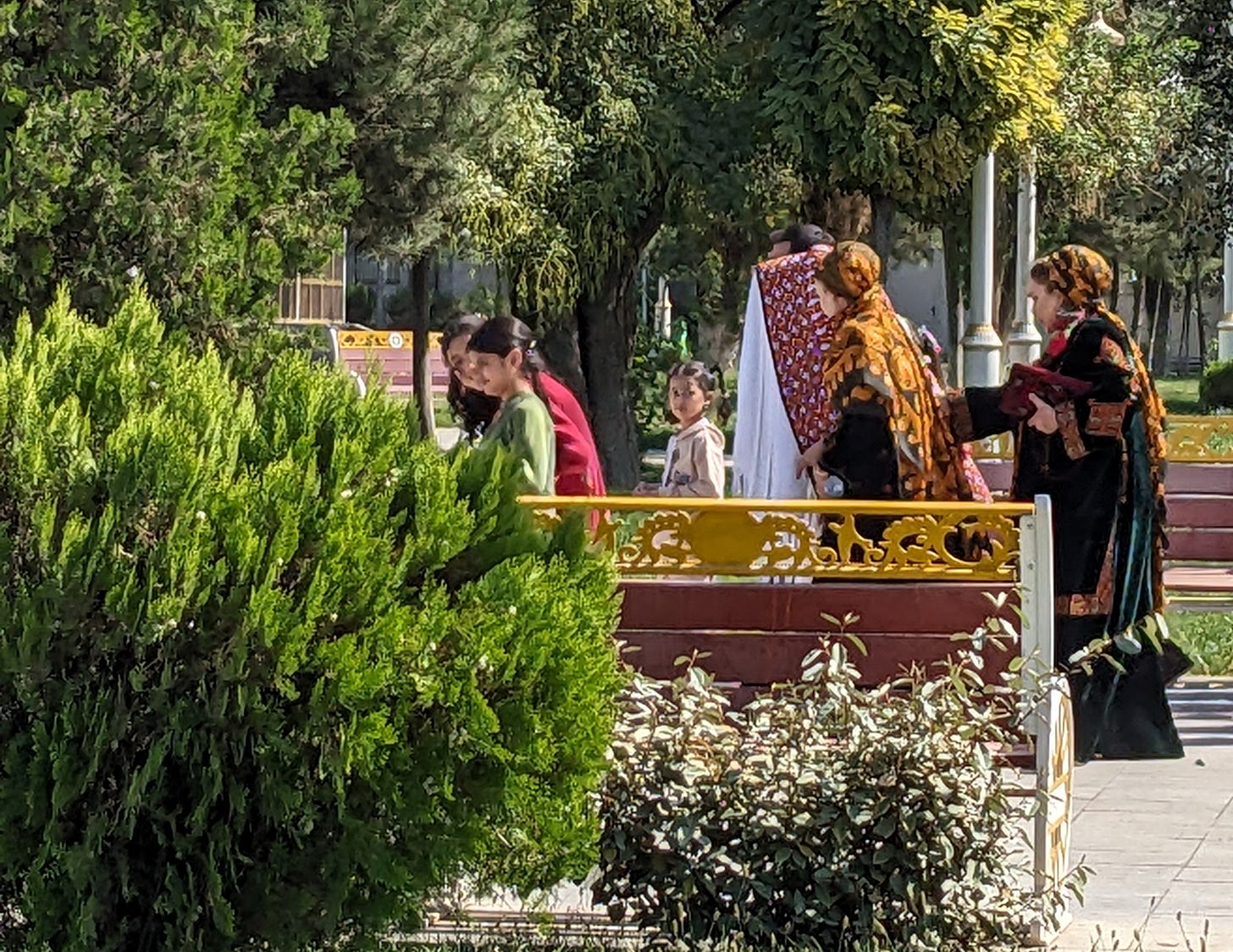
A Police State
Before I went to Turkmenistan, I had heard about some of the rules: no lip-syncing, no smoking, no black cars. The rule list is long indeed when all the “optional” rules are added in. For instance:
There are very few people on the street, so I asked if there was a curfew. The answer, “No, not if you have to go somewhere like work or the pharmacy.” So, yes, a curfew.
There are no fat people anywhere. I asked if this was a government regulation. The answer, “No, but government workers need to be weighed in.” Okay.
I asked if people were allowed to choose their profession. The answer: “The government recommends employment based on your test scores.” So, maybe?
No men have facial hair. And I only saw 3 women with shorter, shoulder-length hair. So yes, technically optional, but the societal pressure must be immense and the consequences severe. (I was surprised to learn in Tajikistan as well facial hair on men is also forbidden by the government.)
Many women dressed identically: school girls in green robes, university students in red robes, and teachers in blue robes, with their long dark hair parted in the middle, two braids, and topped with a traditional cap. This look is mandated by law.
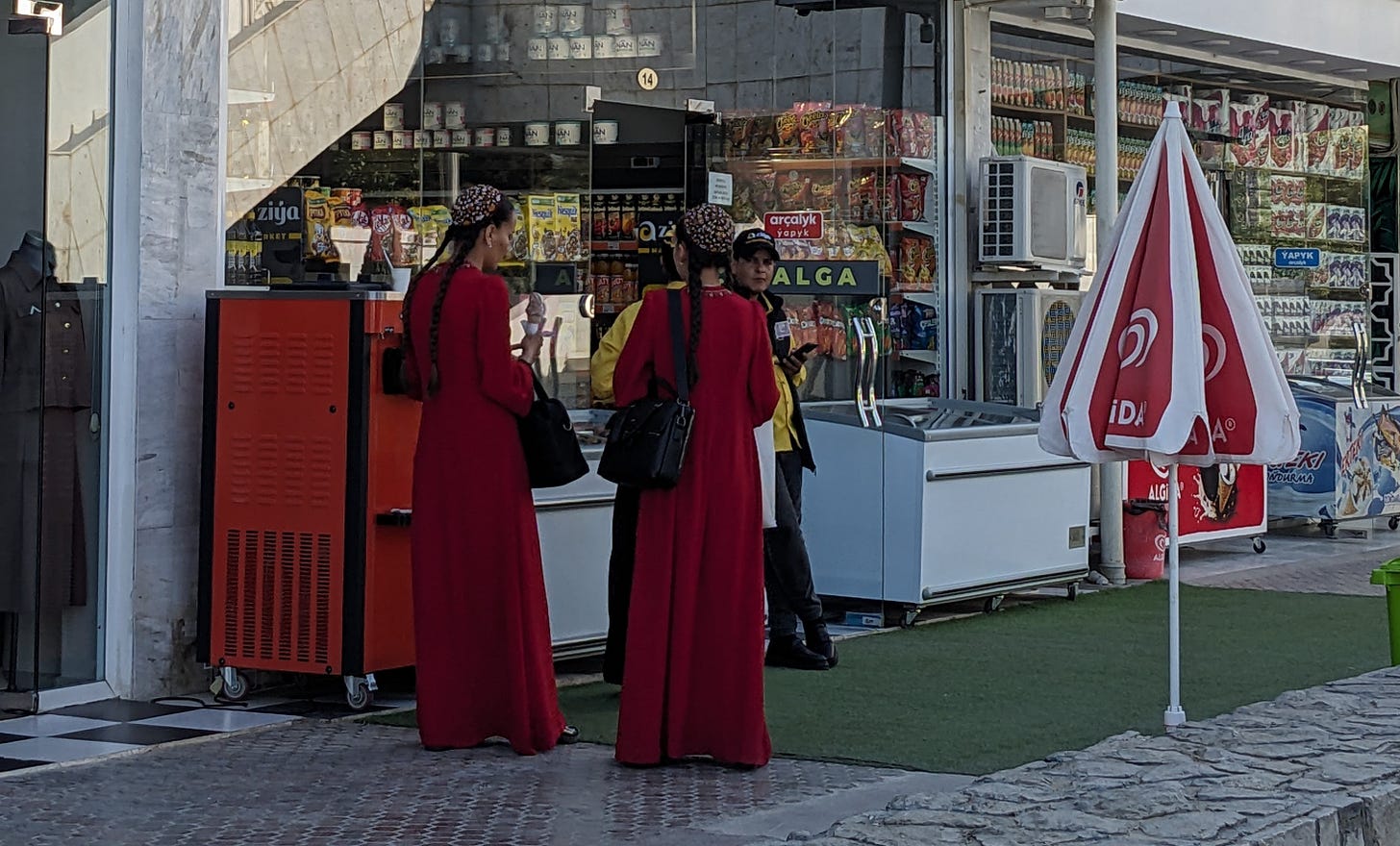
It broke my heart a little to see a group of 4 young women having a picnic. They were sitting on a blanket and singing a Shakira song (likely bootlegged from YouTube via a VPN).
Two of the women had their hair unbraided and down. They were quite literally “letting their hair down.” But the music was abruptly silenced when two police officers appeared in the park.
Even during our short visit, it was quite clear that the government—or its acolytes—are always watching. Like when someone reported that my friend was taking photographs of government buildings.
They thought they saw his camera propped up on the passenger side window, snapping photos, and someone informed the police. We were promptly pulled over and he was asked for his phone. The officer scrolled through his camera roll looking for offending photos. There were none.
Police were everywhere, standing on street corners and manning roadside checkpoints. Corruption is common. I routinely saw our driver pay cash bribes to the police officers and military guards as we traveled throughout the country.
Devil In A White Dress
Nowhere is the government grip tighter than in the capital, Ashgabat, known as the White City.
A stream of large white buildings, white cars, and very few people.
To me, the city looked like a 3D-printed model of a city used in urban planning. All white buildings and white cars (although some silver ones have snuck in). It felt like a fake city.
I also found the use of water throughout the city shocking—especially in a country that is 85% desert.
For instance, the fountains at the Türkmenbaşy Ruhy Mosque and mausoleum, the resting place of Saparmurat Niyazov, the second leader of the country, bordered on obscene. There were reflecting pools and foundations throughout the grounds. (FYI: Visiting a mosque on Friday is also optional, but 98% of people attend.)
Out of Bounds
A stark contrast to the capital was a formerly nomadic village we saw in the Karakum Desert. To me, the town looked dilapidated, akin to one of the U.S.’s under-resourced Native American reservations.
Our guide, however, said the town was wealthy, with many of the residents living as farmers and herders. It’s true the village homes had air conditioners—a must in a country that can reach 50°C (122°F). Healthcare and education are provided, and electricity and gas are free. Petrol is cheaper than water.
I heard that professionals earn $200/month and unskilled workers, such as cleaners and gardeners, earn $100/month. I think everyone was spending their extra cash at the shopping mall. We wondered why our guide kept telling us to go to the mall. It turns out this is where life happens in Turkmenistan.
Yet with so much government censure, you’re bound to have an underground culture. For instance, men would wait to get outside the city limits, then pull over to have a smoke. Folks used VPNs to access Instagram, TikTok, and WhatsApp. The black market for currency was offering a generous exchange rate of 19:1 (vs. the official rate of 3.5:1).
Totally not cool.
What to make of all of this? I’m not sure.
What I do know is that I was relieved to leave, don’t want to go back, and wouldn’t recommend visiting Turkmenistan to my friends. That says it all, I suppose.
Have you ever visited a police state? How did it make you feel? Would you return?
*My government, the United States, now routinely disappears people, too. I’m a firm believer that a government is not necessarily representative of (all) its people. There are good people everywhere despite bad-faith acts of governments and individuals.
⭐ More Adventures A Week
If you like this essay, please leave a comment or share it with others. This will help more readers find my work. 🦋 Thank you!
Christened “Wander Woman” by National Geographic, Erin Michelson is a professional speaker and author of the Nomad Life™ series of curated trips and travel guides, including the #1-ranked “Explore the World with Nomads.”



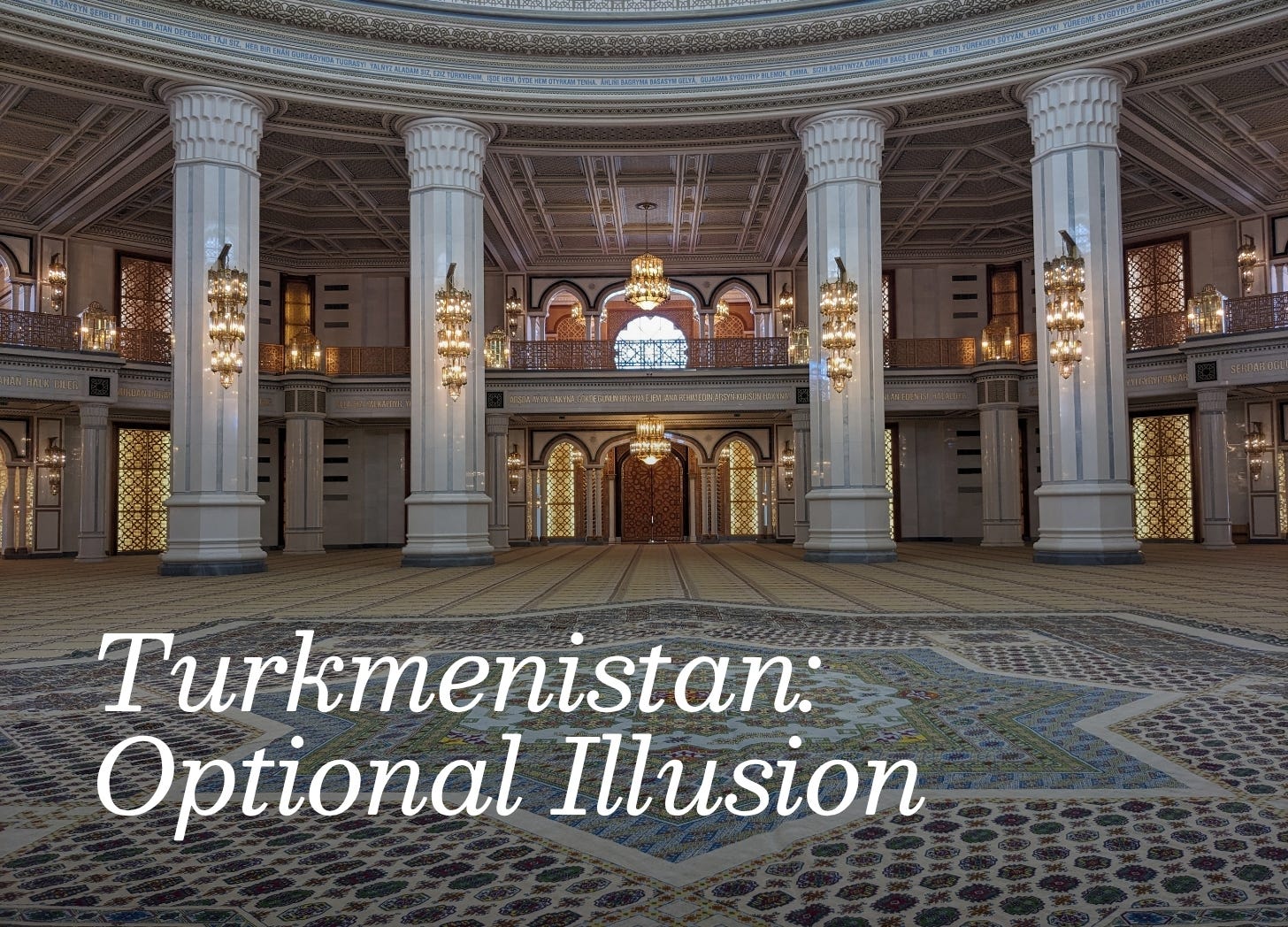
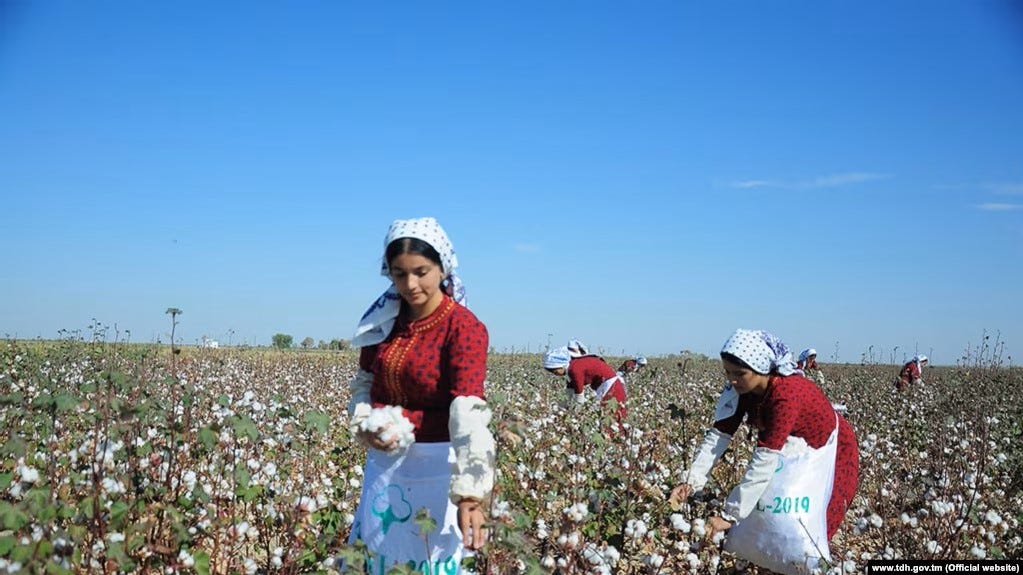
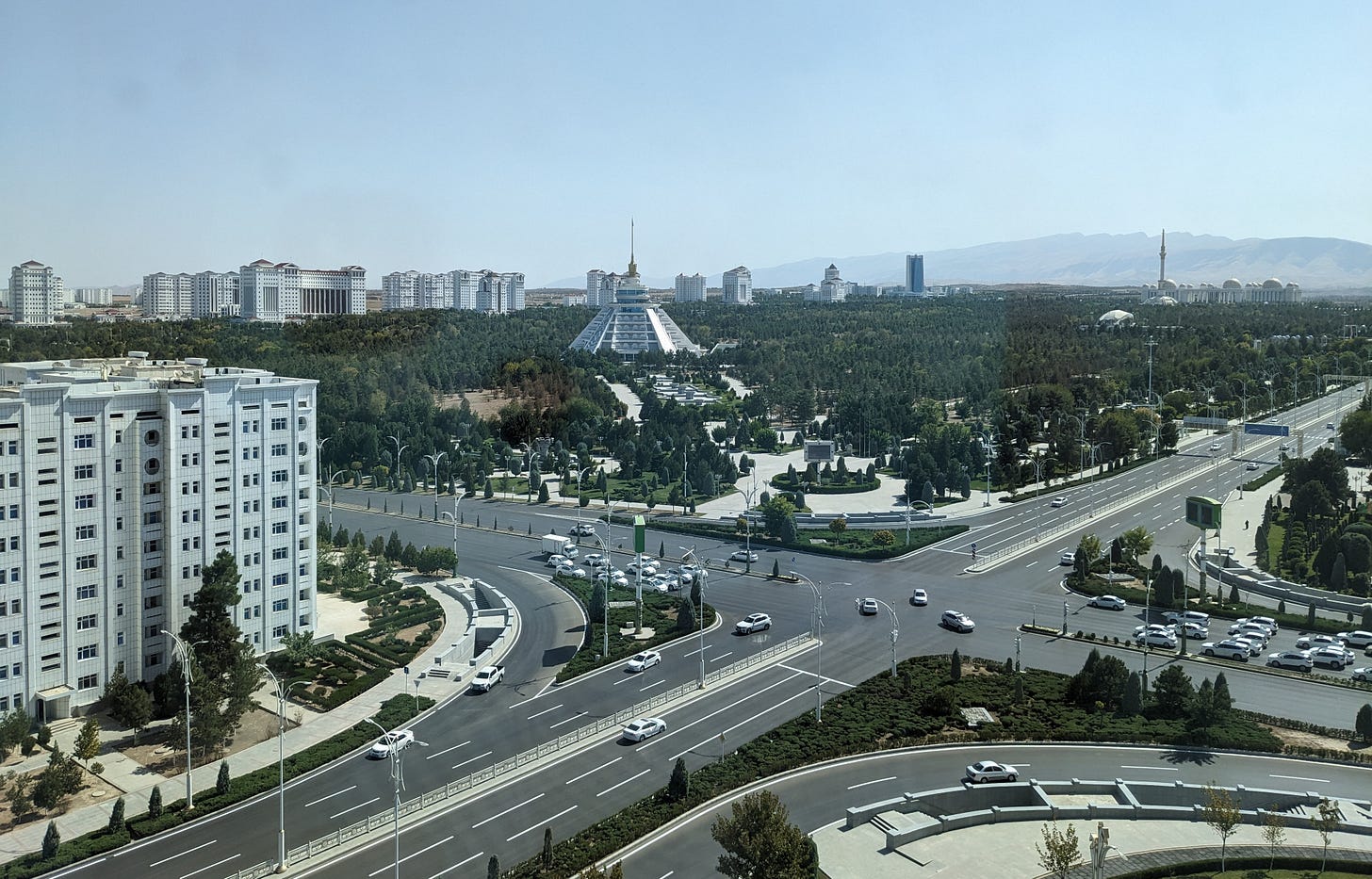
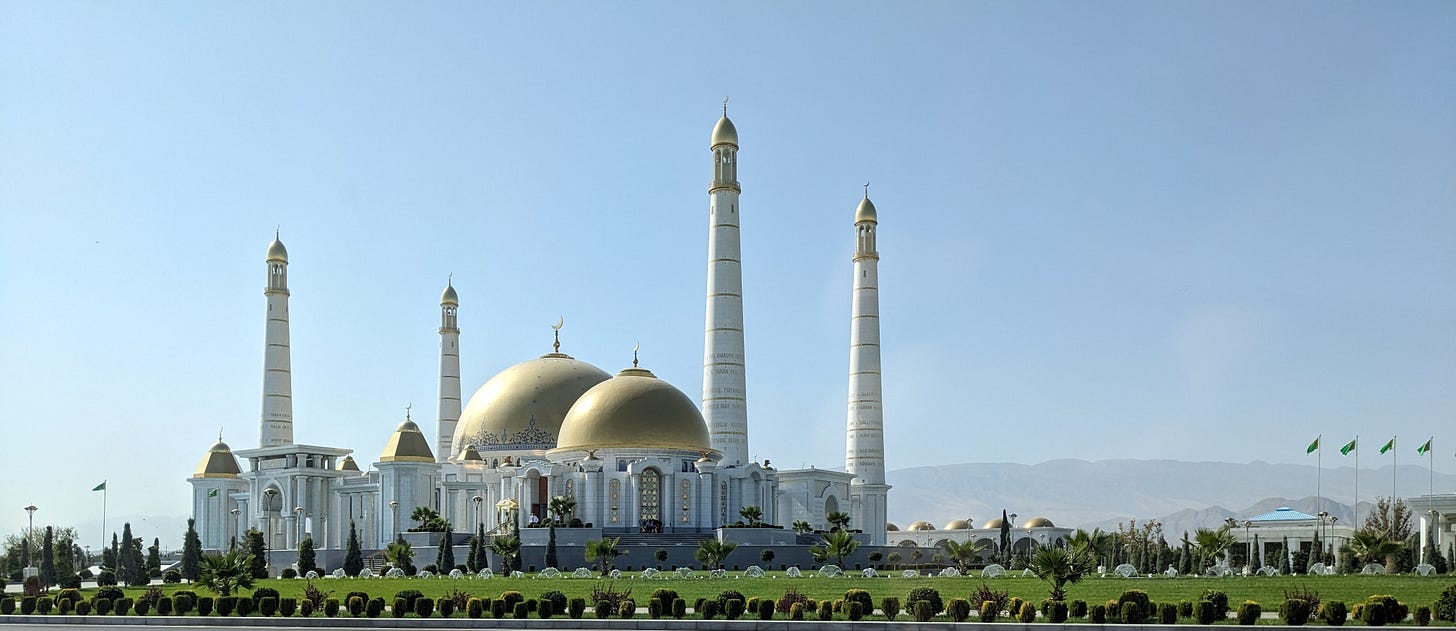
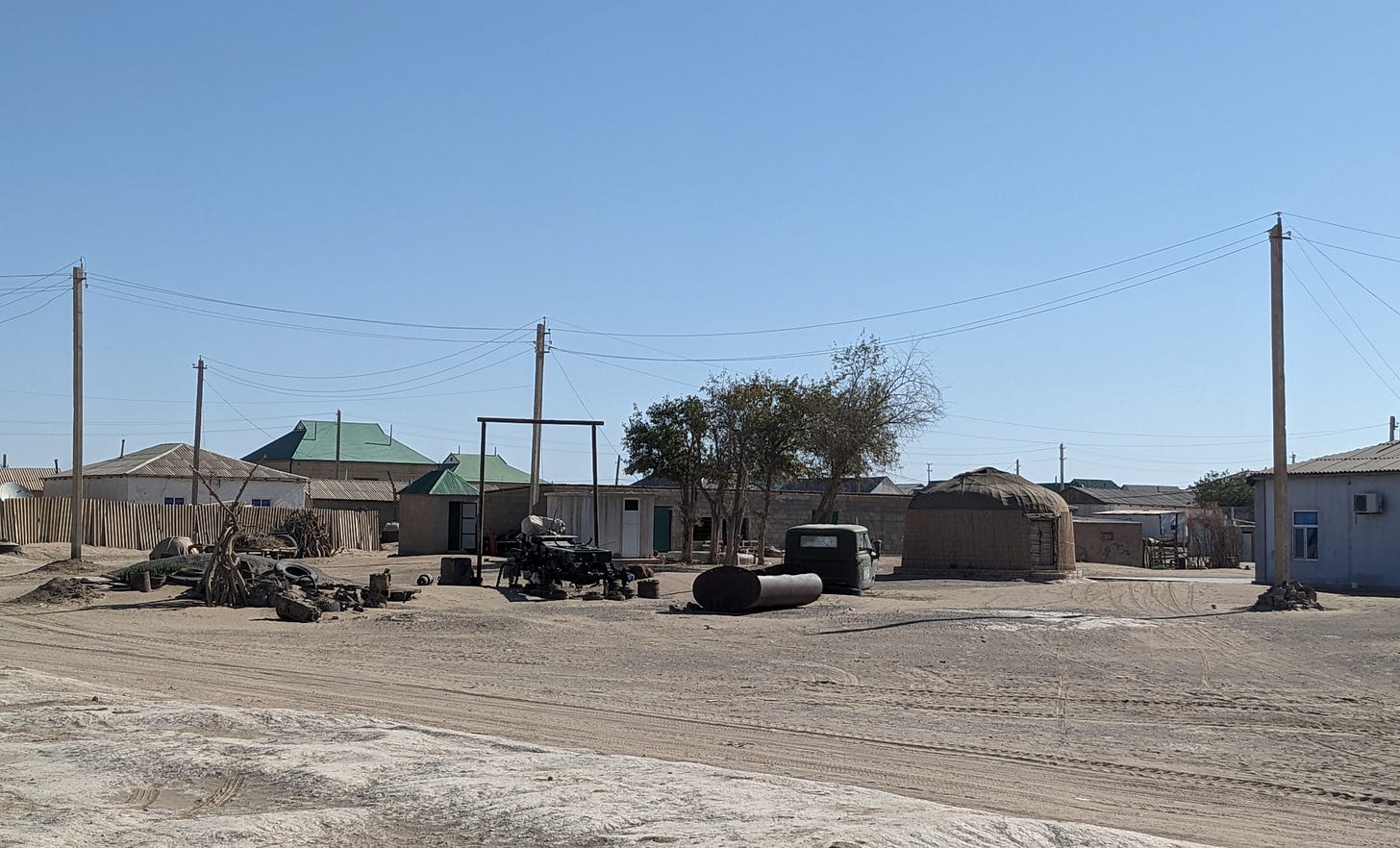
I've been to countries that operate more or less like police states, and how they feel depends on who is willing to talk about it. Sometimes, no one wants to talk - those are the worst cases.
Your observation of women singing in a park and stopping because of the police is similar to what I saw in Iran, when a woman was singing in a public place and was reprimanded by the cops.
Great (although sad) post